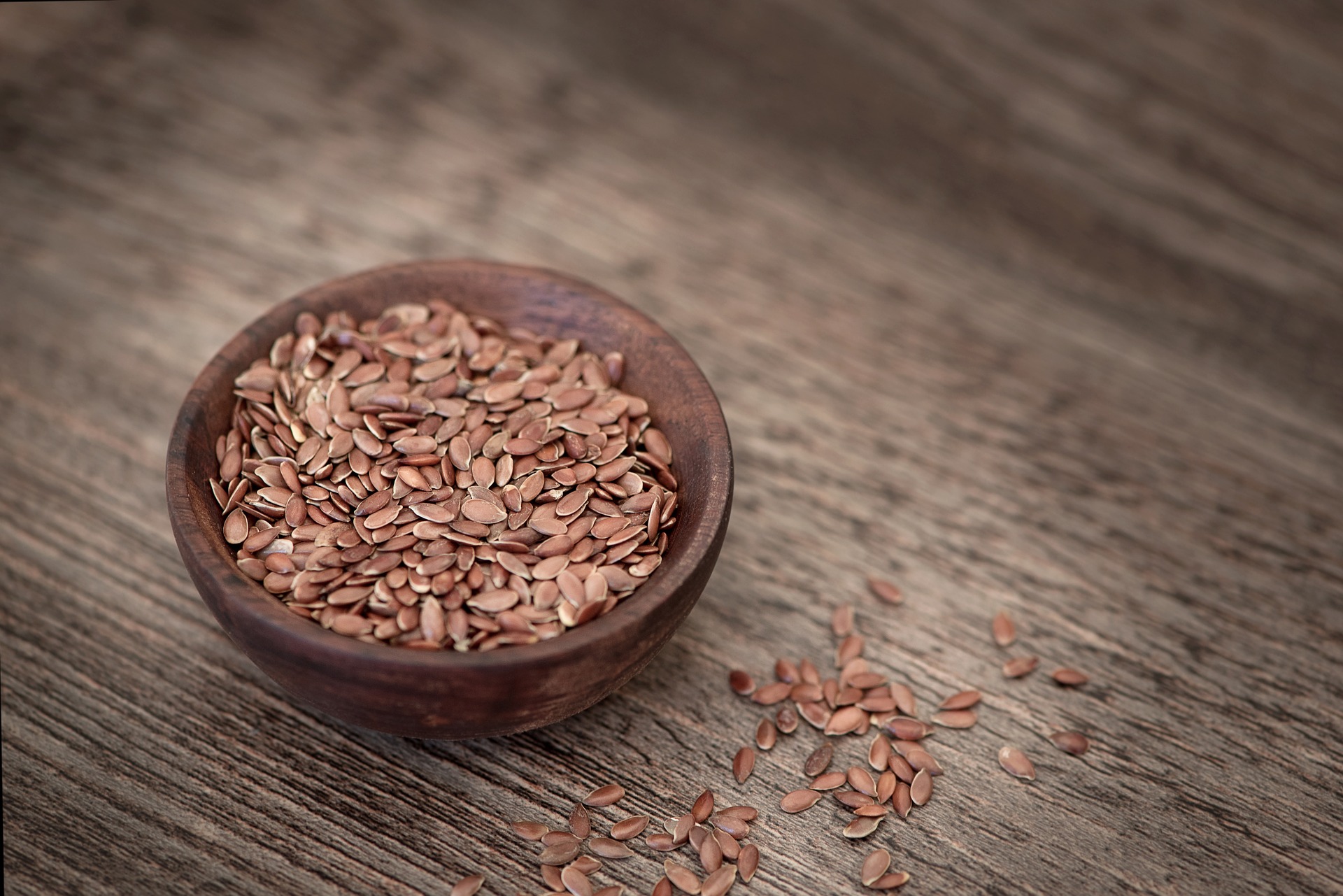General Health Tips & News
BENEFITS OF FLAX SEEDS
By A.A. (staff writer) , published on September 15, 2021

Medicine Telehealth Health flax seeds benefits of flax seeds health benefits of flax seeds
Flaxseed is a rich source of fiber, antioxidants, and healthy fats. It is a plant-based food, and many called it “functional food”. In ancient China and Egypt, people grew crops of flex. For thousands of years, it has been an important component of Ayurvedic medicine.
Flaxseed is now marketed in a variety of forms, including seeds, oils, powder, pills, capsules, and flour. It's used as a dietary supplement to help people in treating and managing conditions like constipation, high cholesterol, diabetes, heart disease, cancer, and a variety of other ailments.
Lignans, antioxidants, fiber, protein, and polyunsaturated fatty acids like alpha-linolenic acid (ALA), or omega-3, are all found in flaxseed. These nutrients may assist to reduce the risk of a variety of diseases.
Benefits
Reducing the risk of cancer
Omega-3 fatty acids are present in flaxseed. According to research, omega-3 fatty acids are helpful in restricting the growth of various cancers. The presence of lignans is essential for slowing tumor growth and forming new blood vessels.
According to a 2013 study, women who ate flaxseed on a daily basis had a reduced risk of breast cancer.
In addition, researchers found in 2018 that flaxseed may help lower the incidence of breast cancer after menopause. Lignans are a kind of phytoestrogens and act as antioxidants. Lignans work in a similar way to estrogen. Although many researchers believe that phytoestrogens may raise the risk of breast cancer, a new study shows they may actually protect against it.
Preventing constipation
Flaxseed contains insoluble fiber, which does not dissolve in water and remains in the digestive tract after consumption. It absorbs water and provides mass there, which may aid regularity.
However, according to the National Center for Complementary and Integrative Health (NCCIH), there is a minimal chance that flaxseed aids with constipation relief. Taking flaxseed with little water might exacerbate constipation and lead to intestinal obstruction, according to the NCCIH. Additionally, consuming too much flaxseed or flaxseed oil might result in diarrhea1.
They Contain High-Quality Protein
Plant-based protein is abundantly present in flax seeds. Nowadays, the focus is more on plant-based protein. Glutamic acid, amino acids, aspartic acid, and arginine are also present in high amounts in flax seeds. Many research studies show that the protein of flaxseed is important for lowering cholesterol, improving immune function, and act as anti-fungal and prevent tumor growth.
If you're thinking about cutting back on meat but are afraid about being too hungry, flax seeds might be the answer. In a research study, 21 individuals were given either an animal protein meal or a plant protein meal in recent research. There was no difference in appetite, satiety, or food consumption between the two meals, according to the research. Both the animal and plant protein meals are likely to have activated hormones in the stomach to provide a sensation of fullness, resulting in eating less at the following meal.
May Lower Blood Pressure
Flax seeds have also been investigated for their natural potential to reduce blood pressure. 6-month research in Canada revealed that consuming 30 grams of flax seeds daily reduced systolic and diastolic blood pressure by 10 and 7 millimeters of mercury, respectively.
Flax seeds reduced blood pressure much more in individuals who were already receiving blood pressure medication, reducing the number of patients with uncontrolled high blood pressure by 17%. Moreover, flax seed's daily intake for more than three months reduced blood pressure by 2 mmHg, according to a comprehensive analysis that looked at data from 11 research.
While this may appear modest, a 2-mmHg drop in blood pressure can reduce the chance of dying from a stroke by 10% and heart disease by 7%2.
Hot Flashes
The problem of hot flushes in women can also be reduced by taking 2 tablespoons of ground flaxseed twice daily. They can take it by mixing in yogurt, juice, or cereal. The difference can be seen after one week, and maximum benefit within two weeks.
On the other hand, more research studies show that no notable decrease in hot flushes between postmenopausal women and breast cancer patients taking 410 mg of phytoestrogens from flaxseed3.
Flaxseed could give you more supple skin
Flaxseeds are also important for the skin. Some studies show that women eating flaxseed experience low skin sensitivity, less skin roughness, and scaling. Moreover, consuming flaxseed makes your skin smooth and improves skin hydration.
Flaxseed fiber aids digestion
Both soluble and insoluble fibers are present in flaxseed. Soluble fiber helps in the elimination of stool by softening it and ease its pathway through the GI tract. On the other hand, insoluble fiber assists in stimulating the digestive system to transport waste through the gut and promote the regularity of the bowel4.
References
- How healthful is flaxseed? [Internet]. [Cited 2021 July 05]; Available from https://www.medicalnewstoday.com/articles/263405#benefits-
- Top 10 Health Benefits of Flax Seeds. [Internet]. [Cited 2021 July 05]; Available from https://www.healthline.com/nutrition/benefits-of-flaxseeds#TOC_TITLE_HDR_7
- The Benefits of Flaxseed. [Internet]. [Cited 2021 July 05]; Available from https://www.webmd.com/diet/features/benefits-of-flaxseed#2
- 10 Health Benefits of Flaxseed, According to a Nutritionist. [Internet]. [Cited 2021 July 05]; Available from https://www.health.com/nutrition/flaxseed-benefits
Find articles related to: Medicine Telehealth Health flax seeds benefits of flax seeds health benefits of flax seeds
More articles about General Health Tips & News
Back to the Health Tips Index




